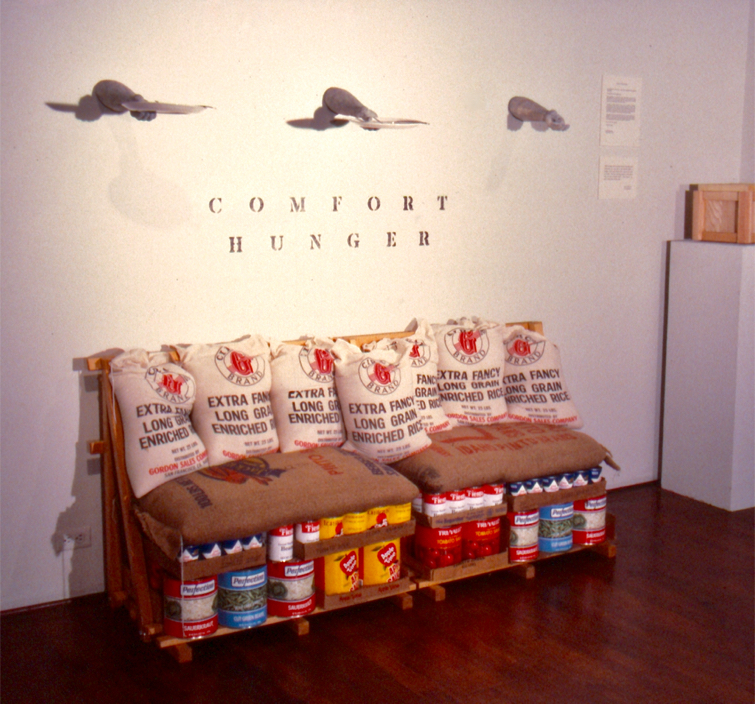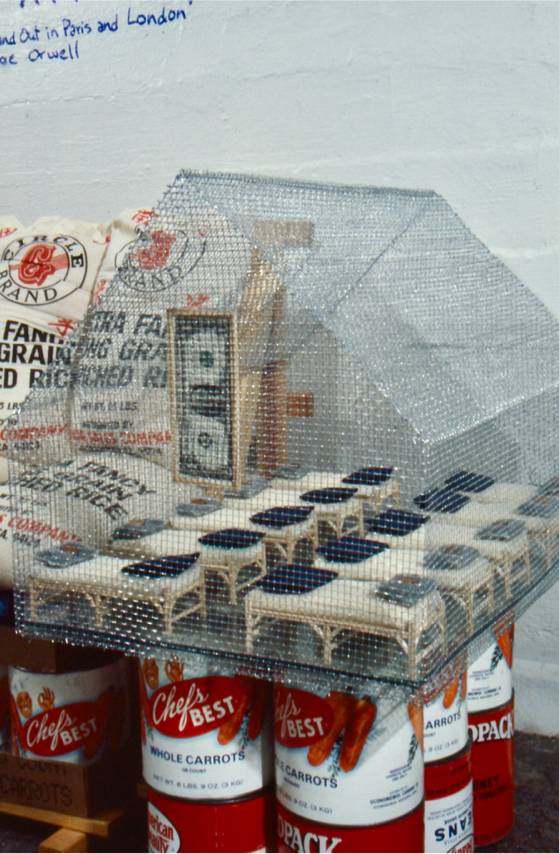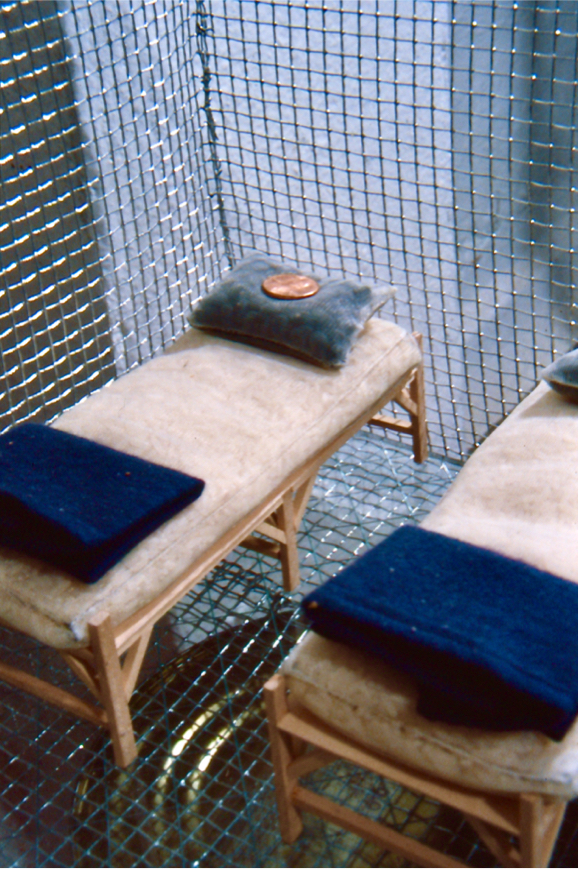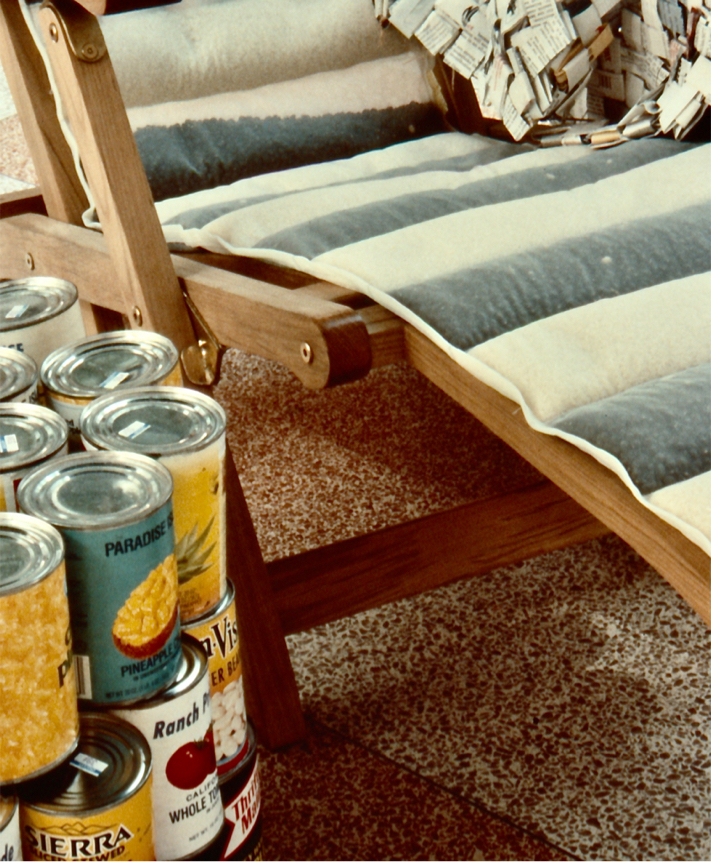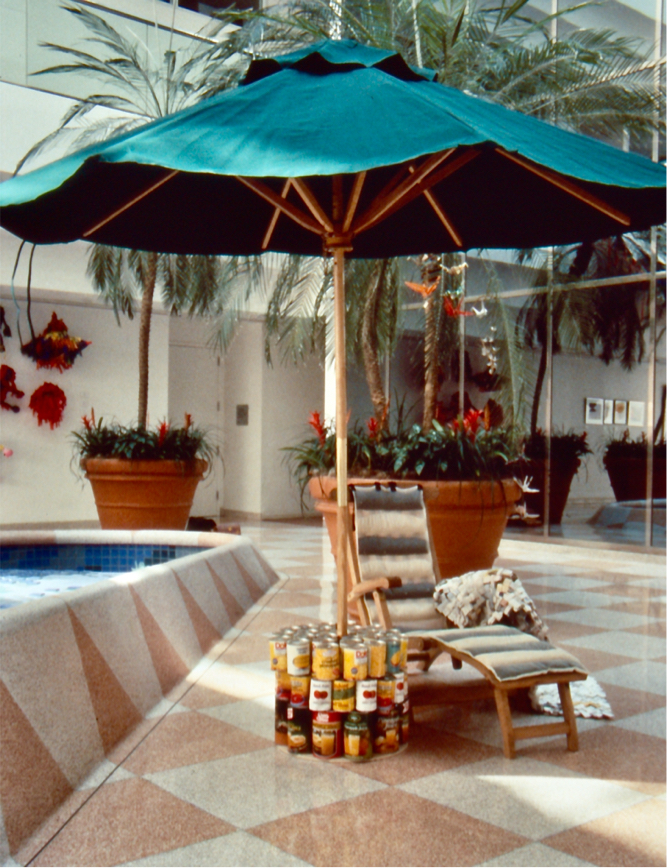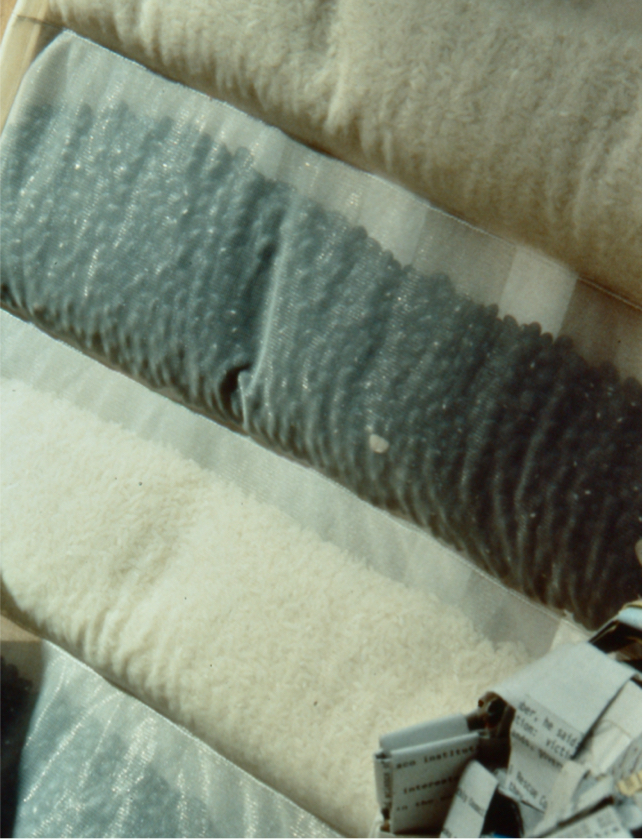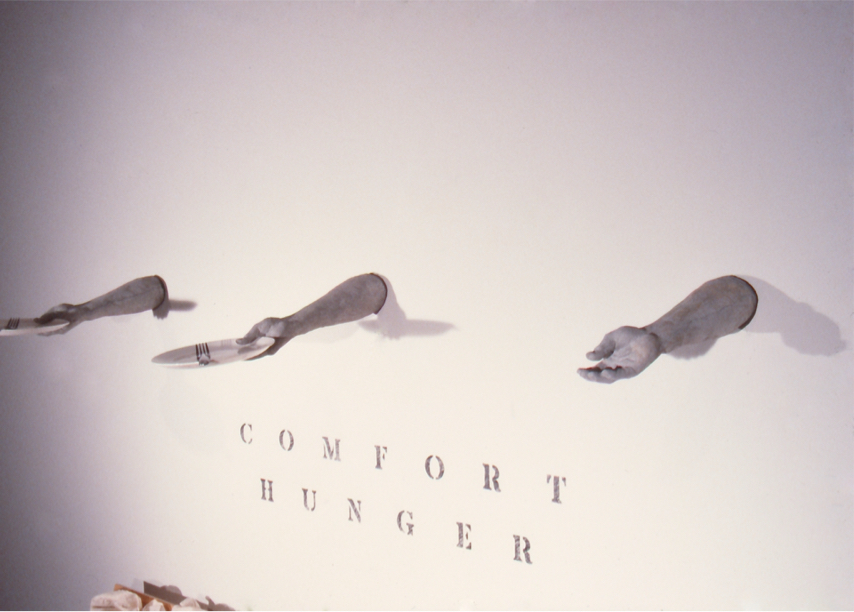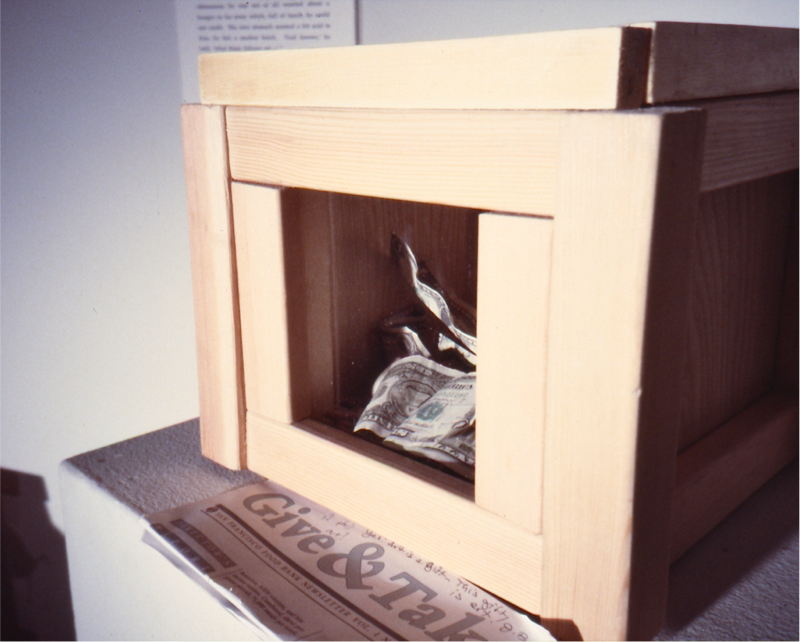This series of temporary installations had multiple iterations and evolutions as the work was presented over a period of eight years. The cans of food and bags of rice from this series was donated to local food banks when each show was disassembled. Addressing the state of poverty in the face of plenty, this series contrasts the “haves” and “have nots” while making a tangible contribution to alleviating hunger.
Lifestyle: Comfort Hunger
Contract Design Center
San Francisco, California 1996
The wood frame was designed to be half palette, half sofa sectional. Currently stored in my studio, it can be reused for future iterations.
Wood, canned foods, dried rice & beans, direct mail donation requests, marker,
tissue paper, edible foliage.
Dimensions:
2.5′ H x 7′ W x 8′ L
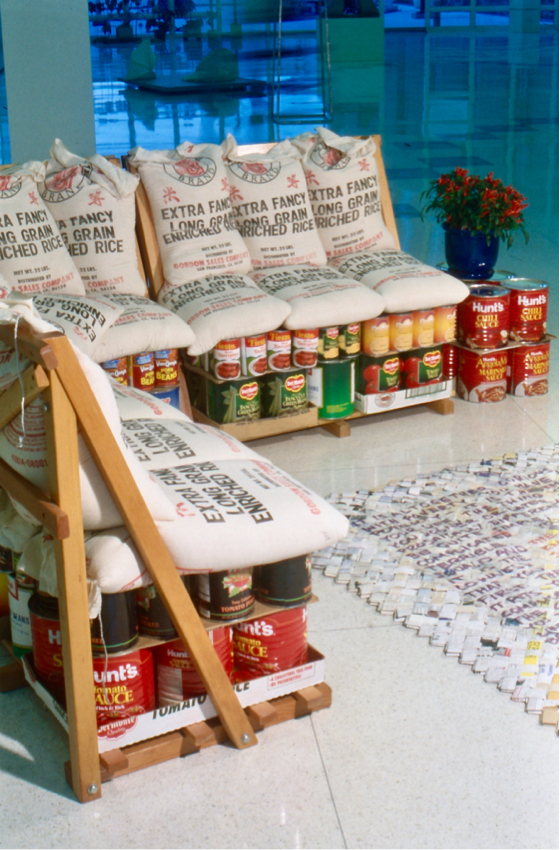
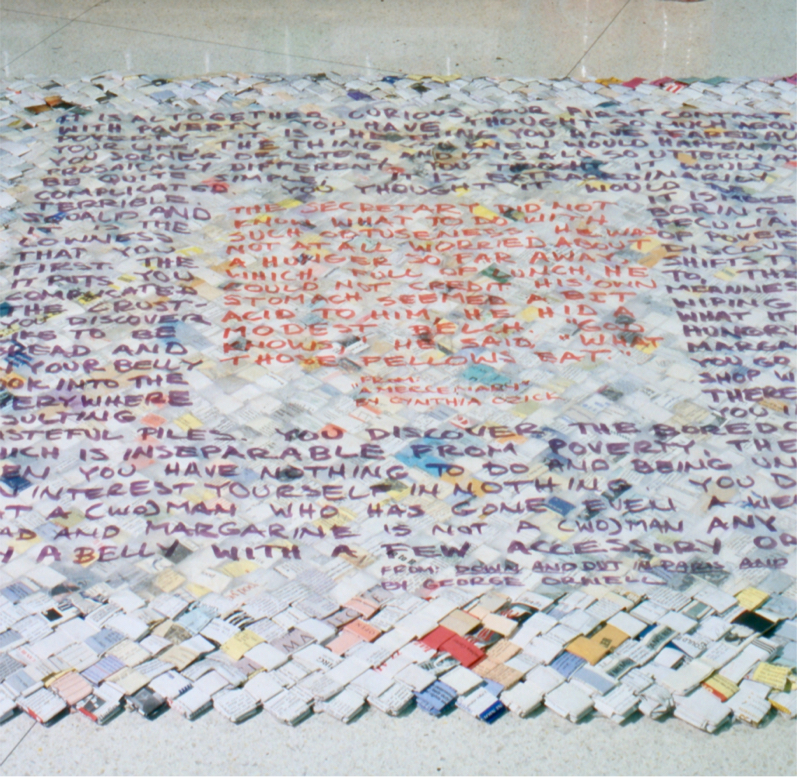
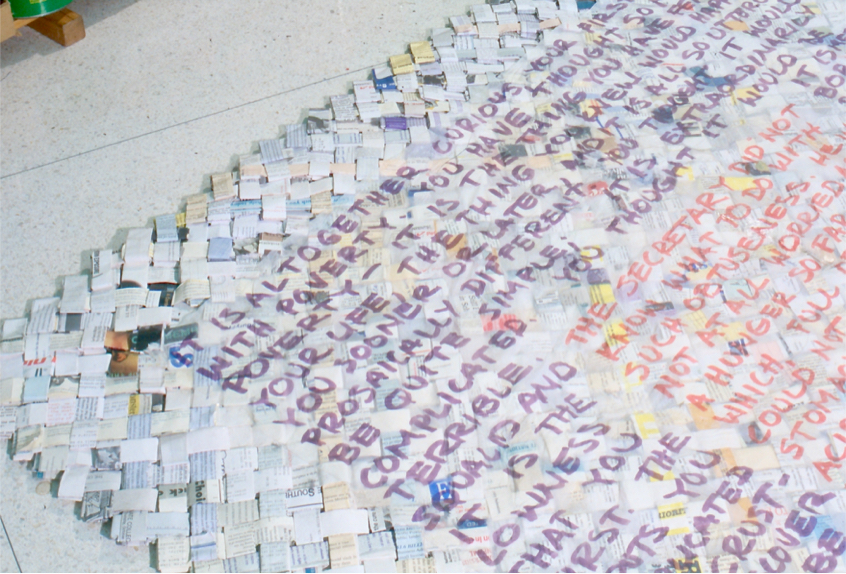
Blue text presents a passage from Down and Out In Paris and London by George Orwell about poverty. Red text presents an excerpt from Cynthia Ozick’s short story “A Mercenary,” about gluttony.
Lifestyle: Comfort Hunger
Institute for Design and Experimental Art (IDEA)
Sacramento, California
1991
Dimensions:
10′ H x 7′ W x 8′ L
Wood, hardware cloth, translucent fabric, canned foods, dried rice & beans, direct mail donation requests, marker, hardware cloth, edible pepper plants.
In this iteration, a “blanket” woven from direct mail requests for charity is draped over the sectional sofa.
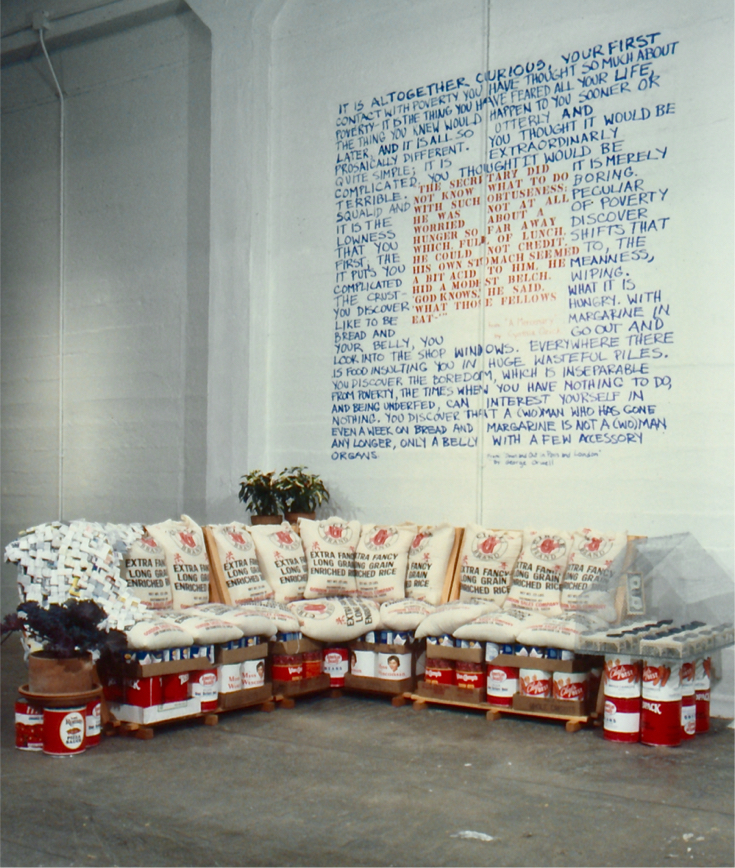
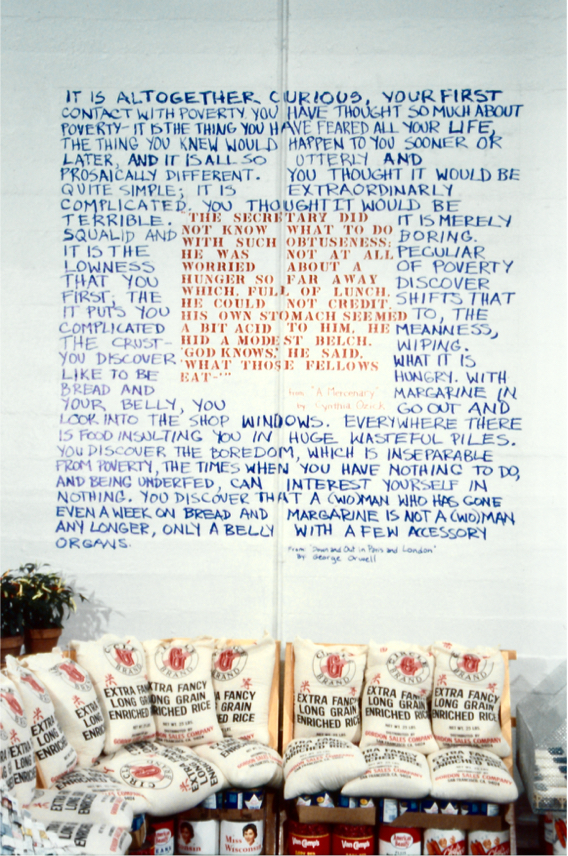
Blue text presents a passage from Down and Out In Paris and London by George Orwell about poverty. Red text presents an excerpt from Cynthia Ozick’s short story “A Mercenary,” about gluttony.
Lifestyle: Comfort Hunger
Rene and Veronica Di Rosa Foundation
(Collection – temporarily)
Napa, California 1997-2020
California State Fair Exposition Hall
Sacramento, California 1993
Berkeley Art Center
Berkeley, California 1991
Wood, hardware cloth, canned foods, translucent fabric, dry black beans and white rice, direct mail donation requests, masonite, marker, edible foliage.
Dimensions:
4′ H x 4′ W x 4′ L
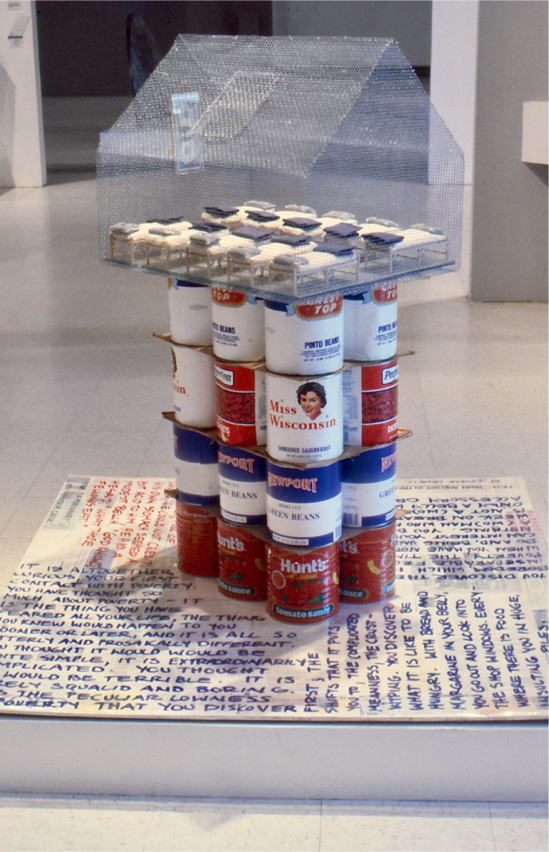
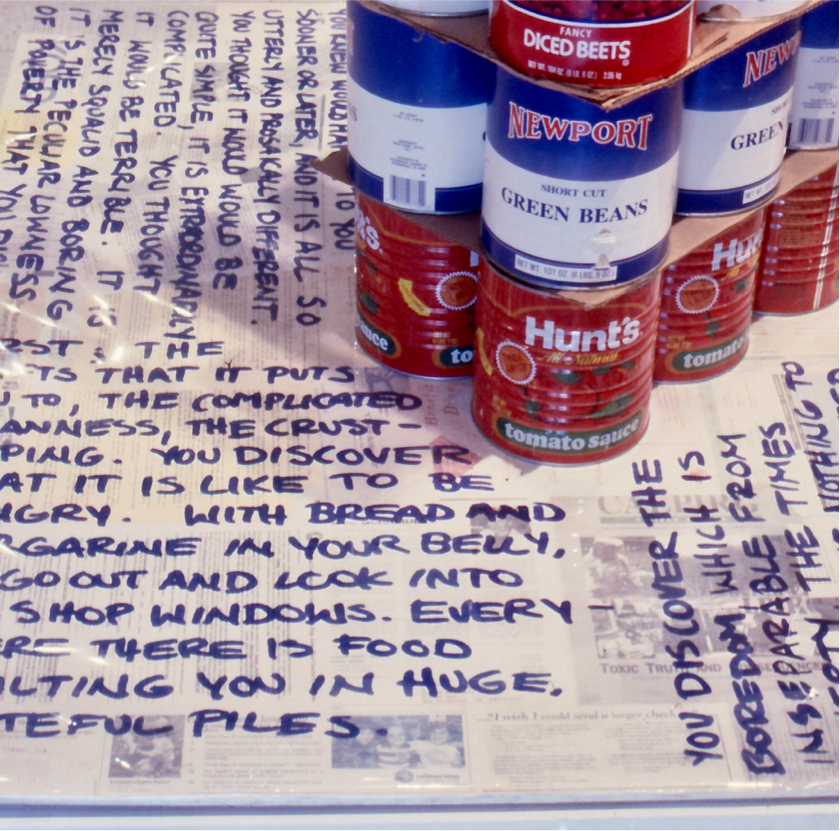
Chaise Lounge: Comfort Hunger
901 Market Atrium Gallery
San Francisco, California 1991
Canned fruits and vegetables, dry black beans and white rice. Direct mail requests for charity. Wood chaise and umbrella, courtesy of Smith and Hawken.
Dimensions:
8′ H x 6′ W x 7′ L
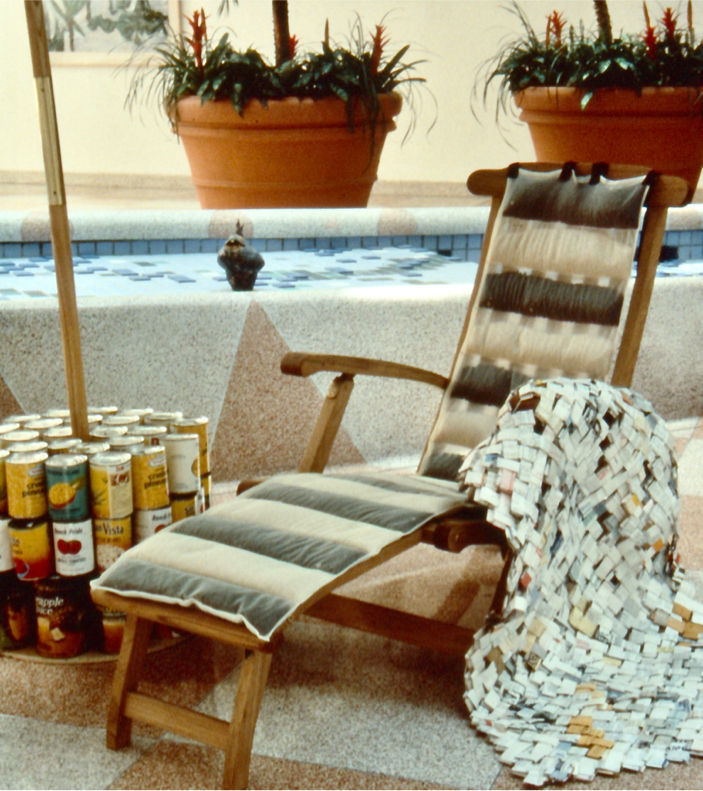
Loveseat Comfort Hunger
Vorpal Gallery
San Francisco, California 1988
The first in the Comfort Hunger series. exploring the theme of food. This piece of food furniture, a metaphor for food as comfort, addressed the issue of charity and hunger in the midst of wealth, gourmet restaurants, and trendy food shops.
Wood, bags of dry rice and beans, canned food, cement, plates and forks, charcoal, plexiglas.
Dimensions:
5.5′ H x 7′ W x 2.5′ L
